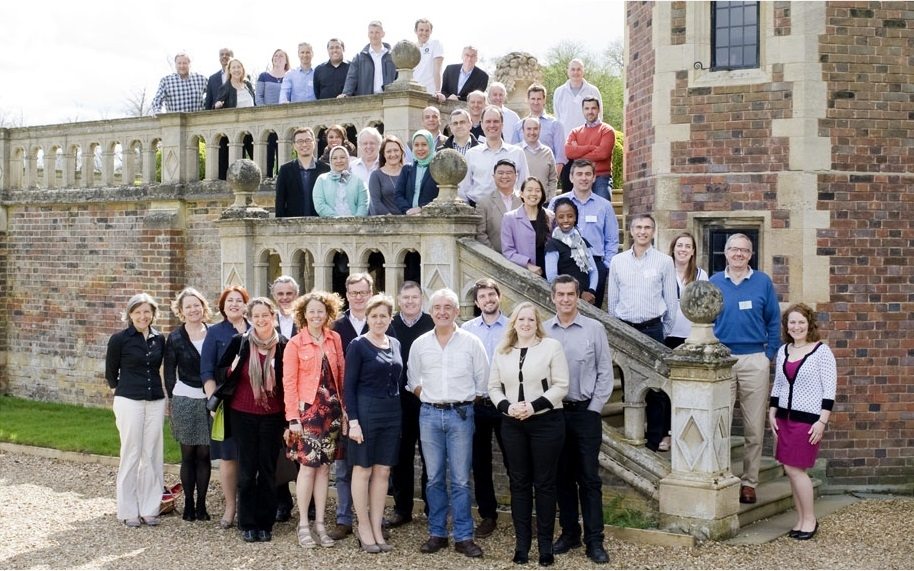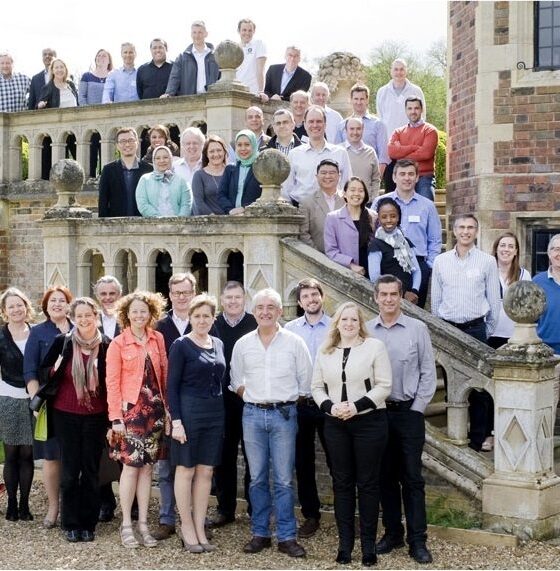

Economy
Enlightened business: 20 years of the Cambridge Business and Sustainability Programme
Tom Revell looks into the Cambridge Business and Sustainability Programme – in the year in which it celebrates its 20th anniversary.
The Prince of Wales’s Business and Sustainability Programme (BSP) at the University of Cambridge runs seminars across the world – from Cambridge to Cape Town, Melbourne to São Paulo – educating business leaders on the challenges and opportunities that sustainability represents.
“We’re not out there to tell people all about the doom and gloom, but to make sure that the people tasked with making significant decisions over our collective future actually understand what is changing and what the outcomes of their decisions might be,” explains Aris Vrettos, director of open programmes.
This year marks the BSP’s 20th anniversary. It was launched shortly after the first Rio Earth Summit of 1992, shaped by the vision of its patron, the Prince of Wales. The prince handpicked the University of Cambridge Institute for Sustainability Leadership (CISL) to run the initiative.
Though the programme now has just under 2,500 alumni, Vrettos talks of a warm, family feeling; of a co-operating network that long outlives the seminars.
These alumni – predominantly senior executives, with a number of policymakers and NGO representatives also among them – leave with an understanding of how sustainability and profitability can be reconciled.
When the programme began, much of the conversation around sustainability consisted of NGOs and banner-waving environmentalists telling indifferent businessmen what they shouldn’t be doing. Now there is co-operation, engagement.
Businesses today dominate the sustainability space. This is, of course, not all down to the BSP, but such a pioneering initiative and the imitators it inspired surely helped. Many of the programme’s alumni return to their organisations inspired to lead action, taking the debate to the boardroom.
Quietly, out of the public eye, the BSP has for 20 years produced a steady stream of sustainability-savvy businesspeople.
“Many of those individuals, who are key decision makers, had a profound experience during the programme”, Vrettos says.
“They’ve come through a personal experience, whereby the spectrum and the opportunity of sustainability has become clear.”
As the wider world begins to face up to the consequences of our years of living dangerously, there is no knowing how important the programme’s work will prove to be.
But what exactly do these sustainability ‘agents’ learn? Presumably for some newcomers, their first port of call is to ask what sustainability is?
“In the beginning of the BSP, people spent hour and hours, days and days, trying to define sustainability”, Vrettos says.
“You can see it as an approach, you can see it as a state, you can see it as a way of thinking. I prefer to look at it as a challenge, and a challenge means both risk and opportunity.”
The risks, of course, are considerable. You would think that supporting a global population expected to reach 9 billion in the mid-century with a finite amount of land and water, dwindling natural resources and a climate heading towards catastrophe would be enough of a challenge. But this is not all.
“We must do that in a way that is much more inclusive and supports our development objectives, such as bringing people out of poverty”, Vrettos adds.
“How do we prosper and develop in those circumstances? That is an immense challenge.
True to his word though, Vrettos insists it is not all doom and gloom: “The good news is that it’s clear we can do it. The restrictions are not physical or technological. They are mostly socio-political.”
Which leads us to the opportunity. Even without referring to moral obligations or the risk that climate change will pose to today’s business models, sustainability is not a difficult sell.
“In my experience, most business leaders respond positively to the opportunity.
“If they haven’t already been through the process of ‘enlightenment’, if they haven’t been through the process of really understanding these issues, then it is the business opportunity of sustainability that provides the best way to engage people.”
Business leaders that get sustainability gain a competitive advantage, Vrettos argues. They understand the challenges that they will face and how to respond, positioning themselves ahead of the curve.
Providing genuinely sustainable services or products also creates more appealing brands and allows organisations to “redefine the market”, creating entirely new product lines and generating revenues from new areas they hadn’t thought possible.
Vrettos’s point is supported by many recent reports and analyses, which demonstrate that sustainability-minded companies and investments often outperform industry averages.
It is a good job, too. Without business on side, it will be impossible to tackle the challenges our civilisation will face in the coming decades.
“Given that most of the economic activity on the planet is business driven, we have to include business. Business has also built a lot of the capacity to take those challenges on”, Vrettos says.
“And we’re not just talking about societies and companies becoming a bit more sustainable, we’re talking about being truly sustainable – that’s where we have to get within the next 15 to 20 years.”
And in those 20 years, what will the BSP hopefully have achieved? When the programme’s 40th anniversary comes around, where will it be?
“Somewhere sunnier,” Vrettos says.
“We want to grow; we are very encouraged by the reception that the programme has had internationally. We physically cannot run it from Cambridge alone and have the impact we want to achieve.”
The BSP’s global plan includes expansion to new shores – India, Latin America, the Middle East – inspiring and harnessing the passion, energy and leadership of businessmen and women around the world.
“We have a responsibility to inform the transition, the transformation of how business interacts with society and the environment so we have to be bold.”
“My vision for the BSP is that we are transformative enough in those key regions that we can really serve as a catalyst for transition, and play a major role in helping business leaders go from where we are today to a sustainable future.”
To apply to attend one of the Prince of Wales’s Business and Sustainability Programme’s forthcoming seminars, visit its website.
Further reading:
Report calls for businesses to move from ‘doing less harm’ to having positive impact
Siemens and sustainability: interview with Roland Aurich, UK chief executive
Businesses call for stronger policy to avoid ‘trillion tonne’ carbon milestone
21st century leadership: from business as usual to business as a force for good
Understanding desire: how brands can respond to what people want






























